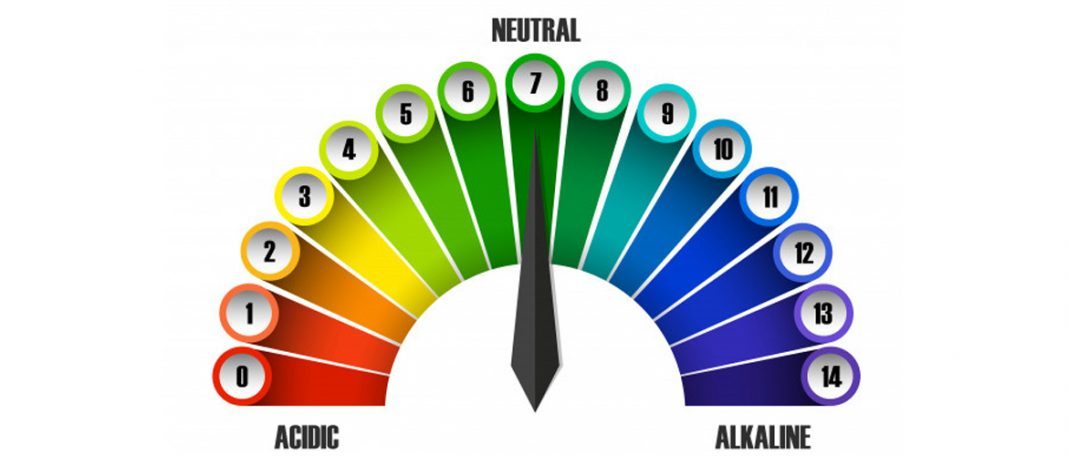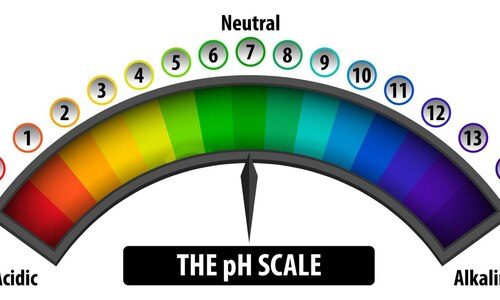Natural Remedies to Restore pH Balance explores various holistic approaches and remedies that can help individuals maintain or regain a healthy pH balance in their bodies. This includes dietary adjustments, lifestyle changes, and herbal remedies aimed at promoting overall well-being and preventing pH-related health issues.
10 Natural Remedies to Restore pH Balance
Balancing your body’s pH is vital for overall health. To restore pH balance naturally, focus on an alkaline diet rich in fruits and vegetables. Kickstart your day with lemon water and incorporate apple cider vinegar into your routine. Enjoy the benefits of green tea and consider using baking soda in water when needed. Probiotics aid in gut health, while adequate hydration helps flush out toxins.
Eat alkaline-rich foods
Consuming alkaline foods can help balance pH levels in your body. These foods include fresh fruits and vegetables, especially leafy greens, cucumbers, broccoli, and avocados. Incorporate these foods into your diet to help keep your body’s pH level in a healthy range.
Stay hydrated with alkaline water
Drinking alkaline water can assist in maintaining a proper pH balance. You can achieve this by adding a squeeze of lemon or a pinch of pH-boosting minerals like Himalayan salt to your water. These additions can help create an alkalizing effect in your body.
Limit acidic foods and beverages
Acidic foods and beverages can contribute to an imbalance in pH levels. Reduce your consumption of processed foods, sugary snacks, refined grains, caffeine, alcohol, and soft drinks. Instead, opt for healthier alternatives such as herbal teas, green juices, and whole, unprocessed foods.
Apple cider vinegar
Despite its acidic nature, apple cider vinegar has an alkalizing effect on the body. Consuming a small amount of raw, unfiltered apple cider vinegar mixed with water can help balance pH levels. Start with a teaspoon or two in a glass of water and gradually increase the amount if tolerated.
Practice mindful eating
Chew your food thoroughly and eat slowly. Mindful eating aids in proper digestion and absorption of nutrients, helping to maintain a balanced pH. Additionally, avoid overeating, as excessive food intake can lead to digestive issues and disrupt pH levels.
Manage stress levels
Chronic stress can affect the body’s pH balance. Engage in stress-reducing activities such as yoga, meditation, deep breathing exercises, or any other activities that help you relax and unwind. By managing stress, you support a healthier pH balance.
Regular exercise
Exercise promotes overall health and can contribute to a balanced pH level. Engaging in physical activity helps improve circulation, enhances oxygen supply to cells, and supports the elimination of toxins from the body. Aim for a combination of cardiovascular exercises, strength training, and flexibility exercises for optimal benefits.
Adequate sleep
Prioritize getting enough sleep to allow your body to rest and rejuvenate. Lack of sleep can disrupt the body’s natural processes, including pH regulation. Aim for 7-8 hours of quality sleep each night to support optimal pH balance.
Probiotics
A healthy gut microbiome plays a significant role in maintaining pH balance. Incorporate probiotic-rich foods like yogurt, kefir, sauerkraut, kimchi, and kombucha into your diet. Probiotics help promote a healthy gut environment, aiding in pH regulation and overall digestive health.
Monitor pH levels
If you suspect an imbalance in your pH levels, you can test your pH using pH test strips or consult with a healthcare professional. They can provide guidance and recommend specific dietary or lifestyle adjustments based on your individual needs.
By incorporating these natural methods into your daily routine, you can support a balanced pH level, which is essential for optimal health and well-being.
Symptoms of Unbalanced pH Levels
If you’re experiencing unusual symptoms such as skin irritation, digestive issues, and infections, your body’s pH level may be unbalanced. pH is a measure of how acidic or alkaline something is, and our body’s pH level can be influenced by various factors such as diet, stress, and the environment.
- Skin problems: An unbalanced pH level can lead to skin irritation, acne, and eczema. If your skin is consistently dry or itchy, it may be a sign that your pH level is off.
- Digestive issues: An overly acidic pH level in your gut can cause digestive problems such as acid reflux, bloating, and constipation. Conversely, a pH that’s too alkaline can cause diarrhea and other digestive issues.
- Fatigue: An unbalanced pH level can lead to fatigue and low energy levels. This is because your body has to work harder to maintain its pH balance, which can drain your energy levels.
- Infections: When your body’s pH level is off, it can create an environment that’s more conducive to infections. Yeast infections, UTIs, and other types of infections are more likely to occur when your pH level is unbalanced.
- Muscle weakness: Your muscles may feel weak or achy if your pH level is off. This is because your muscles need a specific pH level to function properly.
Reduce Drinking Alcohol
If you want to balance the acid-alkaline level, it is better to quit drinking altogether or cut down to healthier levels. It affects the function of the kidneys and may lead to the development of kidney stones. If you drink alcohol, your kidney fails to regulate fluid and electrolytes in the body.
How to get your pH Balance back to Normal
If you’re experiencing symptoms related to an imbalanced pH level, there are steps you can take to help restore your body’s pH balance.
- Eat a balanced diet: Consume more alkaline-forming foods such as leafy greens, nuts, and fruits, and limit acidic-forming foods like meat, dairy, and processed foods.
- Stay hydrated: Drinking plenty of water can help flush out acidic toxins from your body and keep your pH level in check.
- Practice stress reduction: Chronic stress can lead to an imbalanced pH level. Practicing stress-reducing techniques like meditation, yoga, or deep breathing exercises can help improve your body’s pH balance.
- Get enough sleep: Lack of sleep can contribute to an imbalanced pH level. Aim to get 7-8 hours of quality sleep each night.
- Consider pH-balancing supplements: Some supplements like magnesium and potassium citrate may help balance your pH levels.
Foods to Eat – Help Your pH Balance
Maintaining a balanced pH level is important for overall health. Here are some foods that can help support a healthy pH balance:
- Leafy Greens: Incorporate plenty of leafy greens like spinach, kale, and Swiss chard into your diet. These greens are alkaline-forming and rich in minerals, vitamins, and fiber.
- Citrus Fruits: Despite their acidic taste, citrus fruits like lemons, limes, and grapefruits have an alkalizing effect on the body. They are high in vitamin C and help balance pH levels.
- Cruciferous Vegetables: Vegetables such as broccoli, cauliflower, cabbage, and Brussels sprouts are not only nutrient-dense but also alkaline-forming. They provide essential vitamins, minerals, and antioxidants.
- Avocado: Avocados are a great source of healthy fats and have an alkaline effect on the body. They are also rich in potassium, fiber, and vitamins.
- Cucumbers: Cucumbers have high water content and are alkaline-forming. They are refreshing, and hydrating, and can help balance pH levels.
- Almonds: Almonds are an alkaline-forming nut that provides healthy fats, protein, fiber, and various minerals. They make for a satisfying and nutritious snack.
- Herbal Teas: Choose herbal teas such as chamomile, peppermint, or ginger, which are alkaline-forming and can help support pH balance. These teas are also soothing and promote relaxation.
- Watermelon: Watermelon is a hydrating fruit with alkaline properties. It is rich in water content, vitamins, and minerals, making it a refreshing choice.
- Fermented Foods: Incorporate fermented foods like yogurt, kefir, sauerkraut, and kimchi into your diet. These foods contain beneficial probiotics that promote a healthy gut and aid in pH balance.
- Green Vegetables: Besides leafy greens, include other green vegetables like zucchini, green beans, and asparagus. These vegetables are alkaline-forming and provide a range of nutrients.
It is important to note that these are just a few natural home remedies that may help restore pH balance. If you are concerned about your pH balance, it is best to talk to your doctor..
Take Multivitamins
It is not difficult to get all vitamins and nutrients from food alone. You need to consume supplements of multivitamins. You are required to take vitamin D to increase calcium absorption which helps your body maintain vital minerals. Multivitamin supplements support your body’s immune system and also fight against free radicals that reduce alkalinity in the body.
These are the best natural remedies to restore the pH balance in your body.



























